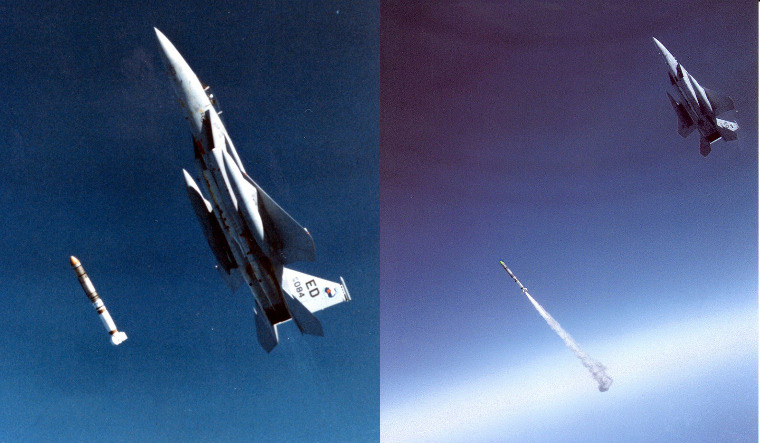
A global moratorium on destructive kinetic anti-satellite (ASAT) tests is gaining traction. The United Nations General Assembly (UNGA) recently passed a resolution calling for a ban on kinetic ASAT tests.
The resolution
- Sponsored by the United States: The resolution was sponsored by the United States, as well as a number of other countries concerned about the effects of ASAT tests on the safety and sustainability of outer space.
- The majority voted in favour: 155 countries voted in favour of the resolution, nine voted against it, and nine abstained.
- Belarus, Bolivia, Central African Republic, China, Cuba, Iran, Nicaragua, Russia, and Syria voted against the resolution.
- India, Laos, Madagascar, Pakistan, Serbia, Sri Lanka, Sudan, Togo, and Zimbabwe were the nine countries that abstained.
Provisions of the resolution over the ban of ASAT
- No binding effect, but urges to avoid an arms race in space: The ASAT test-ban resolution has no binding effect on states; it simply calls on states to stop conducting ASAT tests and to develop additional practical steps and contribute to legally binding instruments to prevent an arms race in outer space.
- Other space-related resolutions were also approved: Along with the ASAT test-ban resolution, which was passed on December 7, there were several other space and nuclear-related resolutions, such as No First Use of Weapons in Outer Space (NFP).
- Support for reducing space risks: The resolution continues to support broader efforts to develop “further practical steps” to reduce space risks.
ASAT
ASATs (Anti-Satellite Weapons): According to a UN Institute for Disarmament Research (UNIDIR) document, ASATs (Anti-Satellite Weapons) are designed to destroy or disable space assets, whether military or civilian, offensive or defensive.
Two types: kinetic and non-kinetic.
- Kinetic ASATs require a physical strike to destroy an object. Ballistic missiles, drones, or any item launched to coincide with the passage of a target satellite are examples of kinetic ASATs. This means that any space asset, including communications satellites, could be classified as an ASAT if used to physically destroy another space object.
- ASATs that are not kinetic: A variety of nonphysical means can be used to disable or destroy a space object. Frequency jamming, blinding lasers, and cyberattacks are examples of these. These methods can also render an object useless without causing it to break up and fragment in the absence of additional forces.
Why ASAT tests are to be banned?
- Threat to peaceful use of outer space: ASAT tests pose a direct threat to the peaceful use of outer space, on which everyone in the global community relies.
- Satellite safety is jeopardised: In recent years, there has been an increase in activities that endanger satellite safety and functionality. The Russian ASAT test on November 15, 2021, which destroyed the Cosmos 1408 satellite, is an example.
- Space debris could endanger the International Space Station: The test produced approximately 1,800 pieces of tracked space debris and possibly many more pieces that are difficult to track, posing a risk to astronauts aboard the International Space Station.
- Rare, high-tech, and dangerous to test: ASAT is an anti-satellite weapon that can blind or disrupt enemy satellite communications while also providing a technological foundation for intercepting ballistic missiles.
Way Forward
- Other UN initiatives, such as the Open-Ended Working Group (OEWG), are underway to reduce space threats through norms, rules, and principles of responsible behaviour.
- These, like the ASAT test ban, are required to move the space security agenda forward.
- States must take small preventative measures, whether legal or normative, before space becomes completely a warfighting domain.
@the-end
Given the deterioration of space security conditions, with more countries developing ASATs and other counterspace capabilities, it is time for more countries to join the current initiative to halt further ASAT tests. Unless countries make a conscious decision to work together to reverse current trends in space weaponization, continued access to outer space is not guaranteed.
Source—https://www.orfonline.org/research/why-an-asat-test-ban-is-important/
